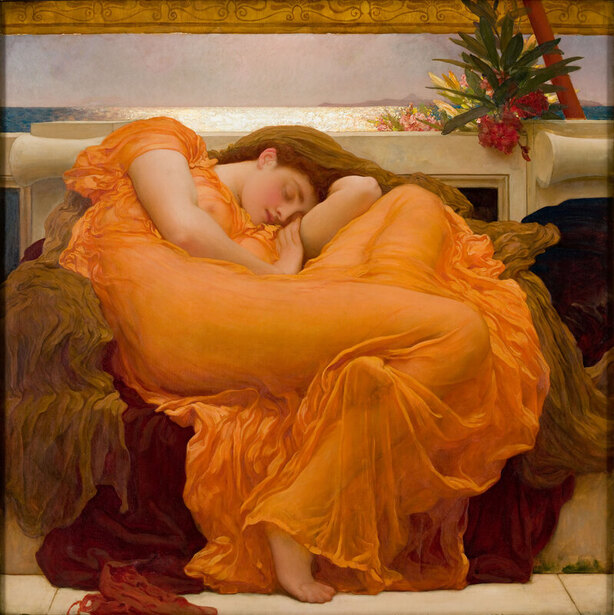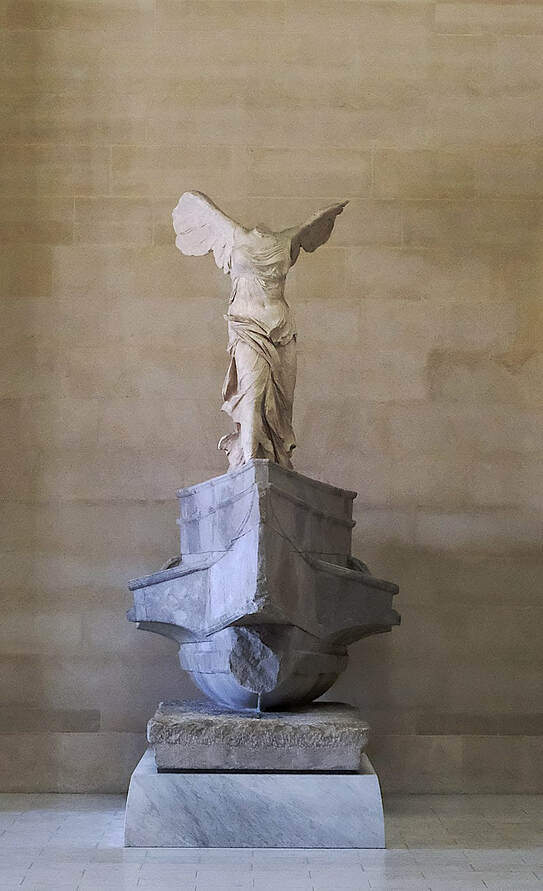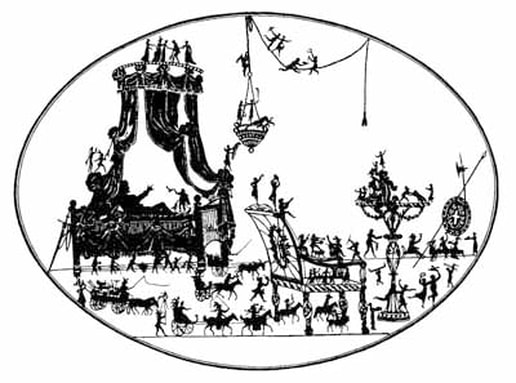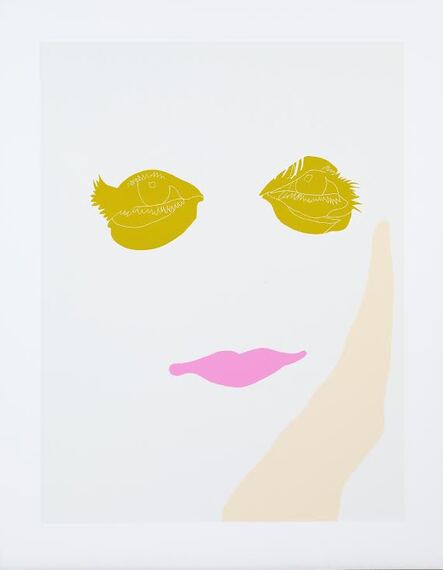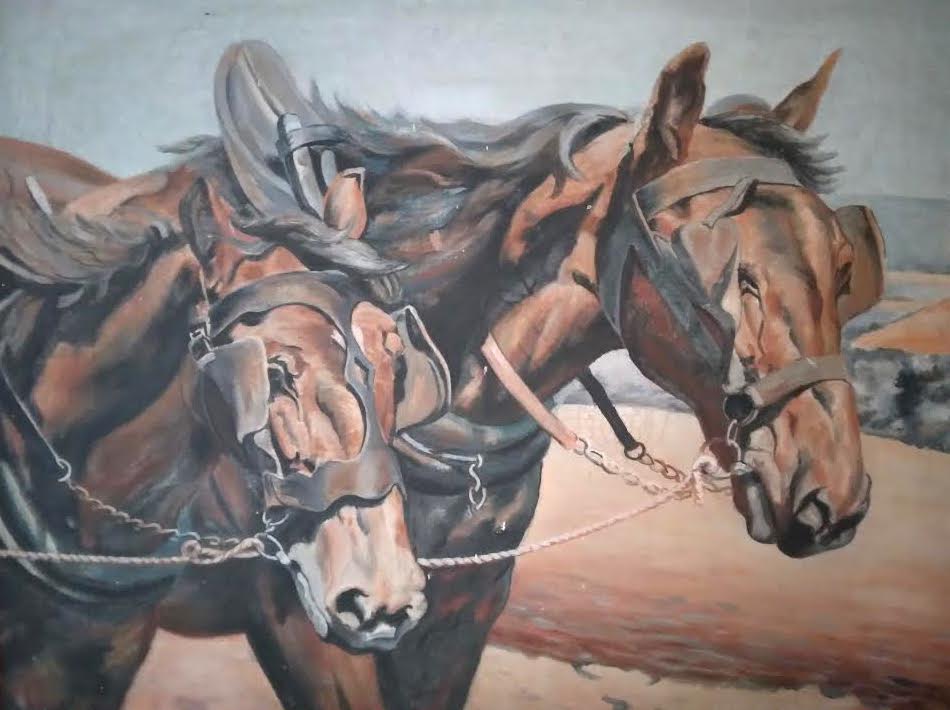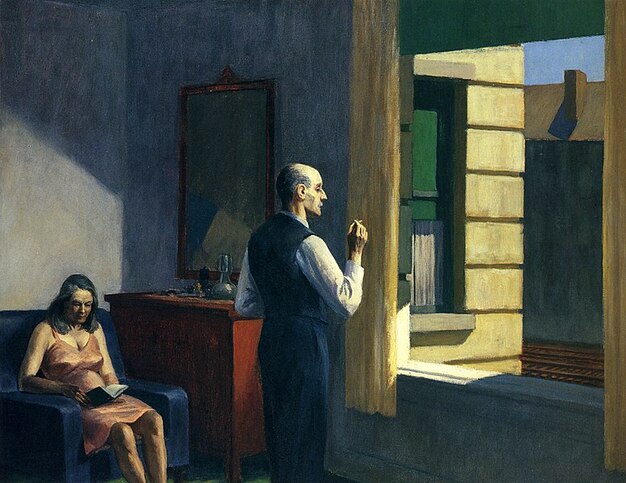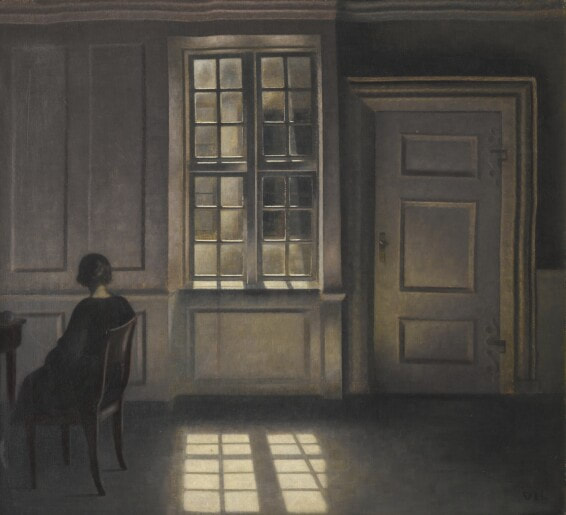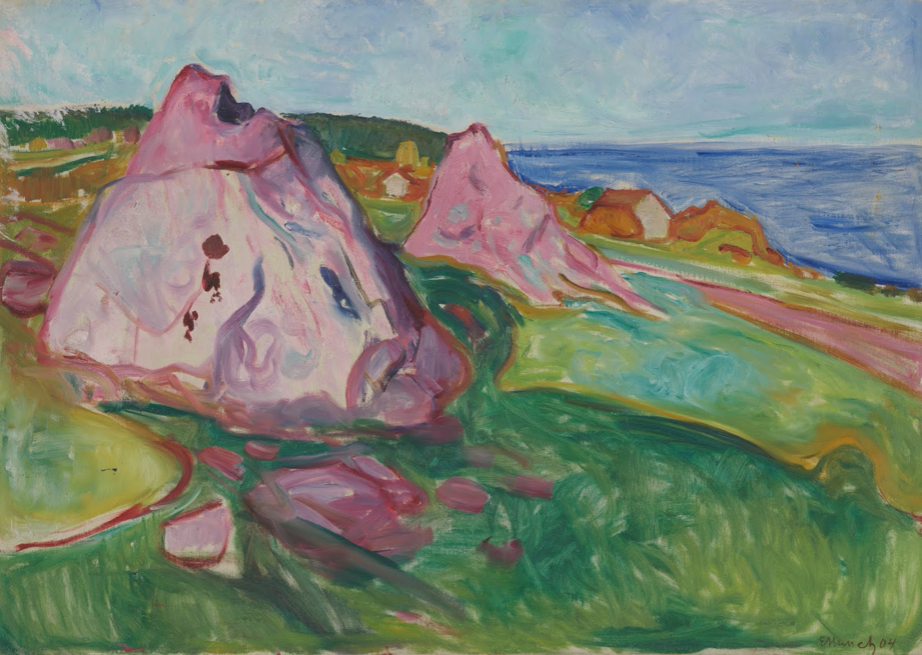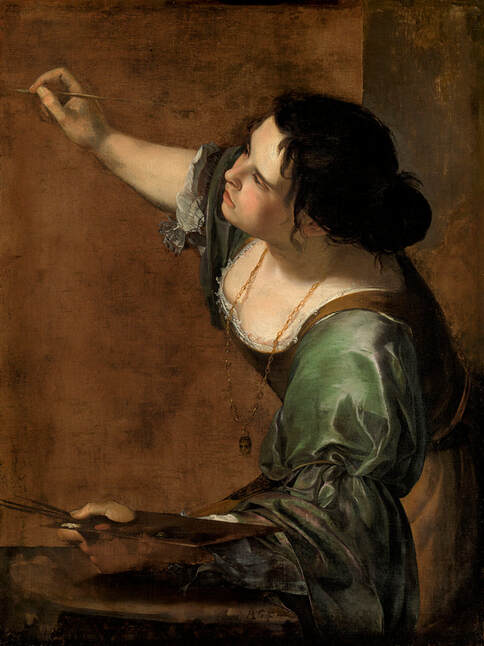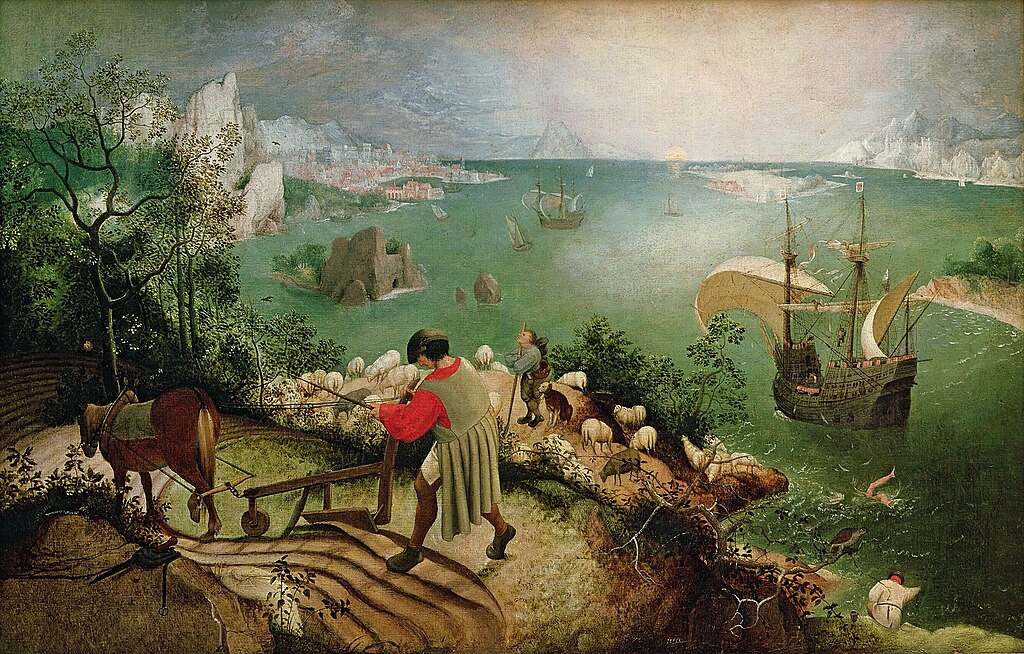|
Hot Date The terrace had been Luc's idea. Yes! she'd readily agreed. He loved the view across the sea. She had the perfect dress (she hoped), the orange silk – and throws! The hue of all her auburn hair would be divine amidst the crimson, ochre. Midday came, and she began to decorate, align then realign. The sun-god watched, aflame, enticed her into breaking from her tasks and settling slowly on the silken seat; his rays caress her as she blooms and basks… and starts to burn. She can't resist the heat. The hours blaze on. She’s on the brink of fire. Sol laughs and lusts and rises higher, higher. F.F. Teague F.F. Teague (Fliss) is a copyeditor/copywriter by day and a poet/composer come nightfall. She lives in Pittville, a suburb of Cheltenham (UK). Her poetry features regularly in the Spotlight of The HyperTexts; she has also been published by The Mighty, Snakeskin, The Ekphrastic Review, The Dirigible Balloon, Pulsebeat, Lighten Up Online and a local Morris dancing group. Other interests include art, film, and photography.
0 Comments
Nike There has hardly ever been another woman able to express so much without needing for a moment her head or her arms – Nike – the woman, victory algorithm: body language of rhetoric winged assemblage, curves, which if trailed, will craft an epic stratagem, décolletage, which if inclined, will disclose the divine, all this, just in case; actually, she is holding here an exclusive press conference on the secret nature of conquest – a premise of massive public interest, here on top of Louvre’s Escalier de la Victoire, courtesy to that fabled impression seeker, expression finder, Paris, per se. From the bottom start your horizon is diced by the flight of steps cascading at your face - ‘E’ flat major tones scaling down as stepping stones for your dream’s advance; while she rises rock solid from the fading flats, the impulse arching her torso in folioline grace and taking your horizon under her wings. You stop petrified at her feathered patronage, after all, she is a text book victory model, and your head starts churning: Do I deserve such instant friendliness? Am I up to this kind of compliment? How should I react? Your problem – your head, which countless a time stops you from being the best version of yourself. While this exactly is her secret strength: no head to meddle with the art of the heart – it rules by direct instructions from the gods. No hands to give in order to grab – Fate alone rewards innocent acts; coming near the biblical skill – non-man-made non-hand-created test. Meditation at its best. Now, the realness - on top of that staircase at the feet of Her Headless Highness – victory set in stone, history’s finest refrain – welcome! But to feel at home, here is the protocol: avoid your head if you want to grasp the gist, be like her – head free, at least stop that clock ticking ‘think-thought’; take the vibes at heart and listen to their part – this is you when losing your mind after the love of your life, you - when at zero hour your wits went blank yet, you reached your mental Mont Blanc, you – when daydreaming flew to Budapest but landed in Buddha’s past – these headless conquests steered here your pilgrimage that now syncs with Nike’s articulate body language, in a joint heroic ‘E’ major tune, courtesy to that fabled impression carver, expression finder, Nameless, per history annals. Now you can cross the river, not Rubicon, the Seine, to see that spirit flamed in all colors at Musee d’Orsay; but before that you can pop down to level zero and say hello to the other armless hero – Venus de Milo. They are relatives. Not just armless Hellas. They are the fabled shape-shifting twinfellas, victory in beauty, beauty in victory, supreme. Each of us a pilgrim. All in a perceptive climb. Down. Up. Round. Fast. Conquest at last! Beautiful! August! …Samothrace, Milos, Paris, Paradise?... Makes no difference, it is the top of the expressianic flight of thousand impressionic steps, courtesy to those fabled ecstatic movers and shakers, as per their fabulous creations. Ekaterina Dukas Ekaterina Dukas, MA, has studied and taught linguistics and culture at Universities of Sofia, Delhi and London, and authored a book on mediaeval manuscript art for The British Library. She writes poetry as a pilgrimage to the meaning and her poems have featured widely on The Ekphrastic Review and its challenges. Her poetry collection Ekphrasticon is published by Europe Edizioni, 2021. Paper Cuts Sinking sharpened scissors into paper skin, she cuts us down to size. Ceaseless manipulation, dexterous trimming, intimate industry-- her tender gravity fashions our elusive half-reality, shadows without shadows. A miniaturised troupe of gossamer forms, we slip into tenebrous theatrics, our daring acrobatics exceeding the page. She insists on our rupture, on her wounding virtuosity. A soft snip. Another captivating cut. Julia Biggs Julia Biggs is a poet, writer and freelance art historian. She lives in Cambridge, UK. Her work has appeared in various print and online literary journals, including Streetcake Magazine, Green Ink Poetry and The Primer. Her current research explores haunting seascapes and the delicious excesses of the Gothic mode. Celebrate Canada Day on July 1 with our workshop, Northern Exposure: an ekphrastic introduction to Indigenous Art History in Canada. Discover the incredible creativity of Canada's Indigenous artists. From the stunning bone and stone carvings of the Inuit of the Arctic north, to the masks and totem poles of the west coast peoples, to contemporary Canadians like Norval Morrisseau and Kent Monkman, Canada's Indigenous artists have made some of the world's most important paintings and sculptures. We will take a whirlwind tour through the centuries, from coast to coast, through today. We will discuss how the themes and concerns of Indigenous art can inspire our poetry and stories, and do a few creativity exercises to generate ideas. Join us on Zoom! Northern Exposure: an ekphrastic introduction to Indigenous Art History in Canada
CA$30.00
Join us on July 1 for our workshop, Northern Exposure: an ekphrastic introduction to Indigenous Art History in Canada. Discover the incredible creativity of Canada's Indigenous artists. From the stunning bone and stone carvings of the Inuit of the Arctic north, to the masks and totem poles of the west coast peoples, to contemporary Canadians like Norval Morrisseau and Kent Monkman, Canada's Indigenous artists have made some of the world's most important paintings and sculptures. We will take a whirlwind tour through the centuries, from coast to coast, through today. We will discuss how the themes and concerns of Indigenous art can inspire our poetry and stories, and do a few creativity exercises to generate ideas. Funny Girl I am five shapes of flat-colour. Make of them what you will – eyes, mouth, a hand cupping one side of my face? A Funny Girl perhaps, though I do not laugh. Or smile. If it is lips you see, they only tell of a pale-pink heart pulled widthways and out of kilter. If it is eyes, they tell of two wrens at twilight, twittering to one another, that inner conversation I keep having with myself. I started out much larger. Now reduced to postcard size and reproduced over and over, I gatecrash households far and wide. I crave the sun, my skin is ashen too long inside without natural light – but the things I have seen behind closed doors, things I have heard from the darkness of drawers. You know I know something but secrets are secrets and none of them funny, so I’m saying nothing. Helen Heery Helen lives in Manchester and began writing poetry after taking early retirement. Her work has appeared in Orbis Literary Journal, Dream Catcher, Obsessed with Pipework and both The Ekphrastic Review and Reflex Fiction websites. Two of her poems were shortlisted in the Bridport Prize 2020 and she came 3rd in the Waitrose Year of Poetry competition in 2014. Read another ekphrastic poem by Helen Heery, here. Tanka bodies glistening jouncing manes flying wildly labour under lash the ground a blur beneath us driven on relentlessly Stephen Poole Author's note: "The Toilers, by William Moule...was painted by the artist whilst serving in the Royal Navy on board the battleship HMS Queen Elizabeth. The frame of the picture, not in shot, was made by the ship's carpenter. The artist is the poet's great uncle." Stephen Poole served for 31 years in the Metropolitan Police in London, England. As a freelance journalist his work has appeared in a variety of British county and national magazines. His poetry has been published in The Ekphrastic Review, Poetry on the Lake, LPP Magazine, and in seven anthologies. Hopper’s People They stare into coffee cups, or gaze at wheat from windows with imaginary glass. They fixate on the smoothness of a street. An introspective class from dusk to night, they ponder how they might have got things right. We’re drawn to their abstraction by a hope they seem to share—that selves can be renewed. The fresh identity toward which they grope in contemplative moods can still be seen in hues of rose and phosphorescent green. But look too long, and you might say defeat has cornered them. Like dollhouse props their furniture is kept too clean, too neat. No accidental drops of paint or sweat will rouse them from their theatre of regret. Meanwhile, sunbeam diamonds cross the floor as shadows in the doorways turn pure black. Motel room, diner, office, general store prepare for an attack of twilight blues. A voice inside the head throbs, Choose. Choose. The creed of Hopper’s people is that souls are faceted and feral. Hard as we strive to settle into human pigeonholes, birth instincts come alive when evening has filled our senses with a wilderness we’ve stilled. David Southward David Southward grew up in Southwest Florida and currently teaches in the Honors College at the University of Wisconsin-Milwaukee. He is the author of Bachelor’s Buttons (Kelsay Books 2020) and Apocrypha, a sonnet sequence based on the Gospels (Wipf & Stock 2018). David resides in Milwaukee with his husband, Geoff, and their two beagles. Read more at davidsouthward.com. What She Didn’t See The wringing of the hen’s neck. The cook in the kitchen, basting. The turn of the doorknob, the silence of it, the husband trooping through the door, his promise to return kept day after day, the dotting of i’s and crossing of t’s jostling for attention inside his worn leather satchel. Her son skittering on pond ice too thin for even his small bones. His red cap and cheeks. His dog, following. The maid setting the table for two. Gravy clotting cold around the carcass on the platter. Syrah staining lace. All this she was blind to, and more, gripped as she was in twilight’s spell, its wind-swell of quiet. The opiate’s open arms, its gray numbing. Her doll eyes set deep, dull, unblinking. The ice, thickening. Mikki Aronoff Mikki Aronoff writes and smooches on dogs in New Mexico. Her work appears in The Ekphrastic Review, MacQueen’s Quinterly, trampset, Milk Candy Review, and elsewhere. She has received Pushcart, Best of the Net, Best Small Fictions, and Best Microfiction nominations. Red Rocks First off, they’re pink, not red. And that big one looks more like a fish head than a rock: narrowed vertical eye, hostile purplish lips. Behind the triangular gill, three bleeding wounds like remnants of battle, at its crown a black crescent vent to let out steam. I can’t look at the shoreline without that fish in the foreground taking over my field of vision like a tanker ran aground, leaking its bilious oil. And last night while watching a show about tsunamis, I saw it for an instant, superimposed on a wave. Surely Munch didn’t mean to stick me with this tormented creature. After all, this place was where he once said he felt happiest, as if he was walking among his paintings. I imagine him there, his easel set up on the hill, a breeze blowing up from the fjord, ruffling his hair. I want the rock back. This may sound crazy, but I feel like Munch hid that fish for me to find. Finders keepers, he says. Even the sky is tainted, though he painted it the most sublime of blues. Eileen Pettycrew Eileen Pettycrew’s poems have appeared or are forthcoming in New Ohio Review, CALYX Journal, Cave Wall, SWWIM Every Day, and elsewhere. In 2022 she was a runner-up for the Prime Number Magazine Award for Poetry and a finalist for the New Letters Award for Poetry. Her work has also been recognized with a Pushcart Prize nomination. Eileen lives in Portland, Oregon. Artemisia Gentileschi Haunts the Musee des Beaux Arts About suffering they are completely wrong, those leery old men. They lull us into believing people are dullards, like cattle chewing their cud. In Bruegel’s Icarus, for instance, the ploughman, head down, appears unaware of the plummeting youth, oblivious to the screaming loss, perhaps indifferent. But look again: he bows his head because he hears the scream, the water’s splash, and cannot bear to look. No one’s as oblivious as they pretend. When I testified at my rapist’s trial, they knew; when they put the Sibille cords around my fingers and pulled tighter and tighter to crush them, using torture as proof of my word, they knew: È vero è vero è vero è vero! My self-portraits in the aftermath encipher the vengeance of my survival: I wear my enemy’s shrunken head around my neck; I am Salome, Lucretia, Judith, Jael, fleshy, unsmiling, taking up space, doing what the cowardly world would not. I’ll show you, my illustrious lordships, what a woman can do. But after four hundred years the world has not learned. The torture of women in courtrooms continues. Rapists sit on the highest court, Holofernes and Shechem born again, but the person who’s grilled is the woman who excels, Susanna persecuted by the elders, a shining sun despite their shade. You can’t tell me the ploughmen cannot hear or see; yet everyone sails calmly on in their delicate, expensive ships, eating crumpets while Dinah gets raped, waiting for Judith to save her own hide while the passive scratch their behinds on a tree. Icaruses are bound to fall and fracture placid surfaces, plunge into the cold shock of their own mediocrity. We’ll be ready, tent pegs and hammers in hand, to lean forward calmly to drive our point home, radiant as the sun burning over the sea. Isabel Cristina Legarda Isabel Cristina Legarda was born in the Philippines and spent her early childhood there before moving to the U.S. She is now a practicing physician in Boston. Her work has appeared in America, Ruminate, Smartish Pace, FOLIO, and others. |
The Ekphrastic Review
COOKIES/PRIVACY
This site uses cookies to deliver your best navigation experience this time and next. Continuing here means you consent to cookies. Thank you. Join us on Facebook:
July 2024
|
